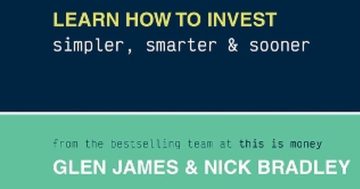Keri Danielski* says there are some old-school personal finance practices that deserve a second look.
 With a number of written and unwritten rules for how to handle your personal finances, it’s easy to get overwhelmed and not know which rules to follow or which ones will work best for you.
With a number of written and unwritten rules for how to handle your personal finances, it’s easy to get overwhelmed and not know which rules to follow or which ones will work best for you.
When it comes to your managing your money, it’s important to remember that one size does not fit all, and that some flexibility is encouraged.
Here are some old-school practices that we think deserve a second look.
Ready to break some rules together?
- Saving six months’ worth of expenses in an emergency fund
Conventional wisdom says you should have an emergency stash of cash that you can survive on for up to six months.
Most people take this piece of advice and believe that’s the most they should be saving up when in reality, this is more of a baseline for you to start with.
The amount you need depends entirely on your personal circumstances, and once you hit a goal that works for you, don’t stop there!
If you’re able to save enough money to survive on for six months, set a new goal for yourself and keep going.
You never know when life will throw you a curveball, so it’s important to set yourself up with a strong safety net.
- Not using credit cards
Credit cards can be daunting at first.
Many people shy away from them, fearful of overspending and being burdened by debt.
But here’s the thing: credit cards aren’t inherently good or bad for you.
They’re financial tools, and while they can get people into trouble, they can also be used for good.
Using them can help you build your credit score (as long as you make timely payments) and, in some cases, even help you rebuild it with a secured line of credit.
- Staying at the same job for most of your career
While this might be one of the oldest “rules,” this is one that everyone should be willing to break.
Yes, most of our parents and grandparents may have worked at the same company for 15+ years for the pensions, but with a thriving job market, this isn’t a reality for most.
By hopping around the corporate ladder or starting a side hustle, you can help your career advance faster by taking on roles at new organisations and trading up for a better salary or title (or both), which can open doors to new financial milestones.
- Relying entirely on a financial advisor
Having a financial advisor may seem out of reach for someone fresh out of university and is an expensive option when you’re on a tight budget.
So where to turn for advice on how to make your money work for you and guidance on where to allocate all your resources?
Luckily, there are plenty of apps and personal finance tools that help you budget, manage your money, and provide insights that are personalised for you.
Some offer personalised recommendations to help you improve your financial situation, such as tips on creating a first budget to debt consolidation to growing investments.
It’s just like a personal advisor in your pocket.
* Keri Danielski is a personal finance evangelist for Intuit Turbo and Mint. She tweets at @KeriDanielski.
This article first appeared at www.brit.co.











